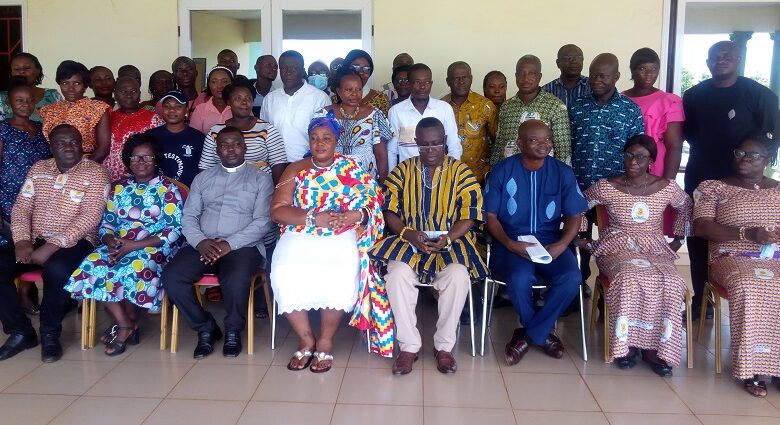
Abortion is permitted by law in Ghana provided it is carried out by registered medical practitioners in registered facilities, Comfort Korkor, the Ahafo Regional Public Health Nurse(PHN), has disclosed.
Mrs Korkor noted that the Ghana Abortion Law (GAL) under Provisional National Defence Council (PNDC) Law 102 of 1985, legalised abortion where pregnancy was as a result of rape and incest.
“Abortion is also permitted where the continuation of a pregnancy will result in injury to a woman’s physical, mental or serious abnormality,” she stated.
The Regional Public Health Nurse delivered a presentation on Zero Tolerance Campaign Value Clarification and Attitude Transformation (VCAT) on Monday at Goaso, the Ahafo Regional capital.
Mrs Korkor indicated that the menace of unsafe abortion had been a very contributing factor to maternal mortality in Ghana, which needed an urgent and comprehensive solution.
“In Ghana, the estimated abortion rate varies by zones. The number of abortions per 1,000 women in the middle belt is 51 while that of the coastal and northern zones were 45 and 24 respectively,” she added.
The Regional PHN said over the past two decades, maternal mortality had begun to decline, though progress had remained slow to achieve targeted reductions, adding that unsafe abortion contributed 14 per cent of all maternal deaths reductions.
Mrs Korkor noted that most women resorted to unsafe abortion due to stigmatisation in society, lack of knowledge on safe abortion services and non-readiness to cater for a baby, coupled with parental neglect and resentment.
She expressed worry about how unsafe abortion was killing a lot of women because abortion was perceived as a religious and cultural taboo in the country, and ignorance of the law on abortion.
The Regional PHN said unsafe abortion had consequences on women’s health including infections, heavy bleeding, uttering perforation and damage to the genital tracts and internal organs as a result of insertion of dangerous objects into the body.
Mrs Korkor emphasised that the poor attitude of health professionals, inadequate geographical access to approved abortion facilities and financial difficulties faced by women were the barriers to safe abortion care.
She implored women to seek Comprehensive Abortion Care(CAC) services such as the use of contraceptives to prevent unintended pregnancy, provision of information on abortion care, abortion management and post abortion care.
FROM EMMANUEL ADU GYAMFI, GOASO







